
Be Part Of Our Inaugural 2021 Transitions of Care Summit
The patient voice and experience is an integral part of a successful transition from pediatric to adult care.
The CNF Transitions of Care Summit, which was held June 15th-24th, 2021, focused on ensuring that young adults living with a neurologic condition and those who support them, have the knowledge, tools, and confidence to be able to make the process a success.
The summit included 7 live talks and 3 pre-recorded videos released to registrants. Each event focused on a different topic related to the transitions process and give viewers the opportunity to dig deeper no matter where they are in the transition process.
If you want to hear from our panelists or if you are interested in any of the topics covered at our summit… it’s not too late!
All of the sessions were recorded and are available to view on our Transitions Of Care Hub on our website, along with other tools and resources.
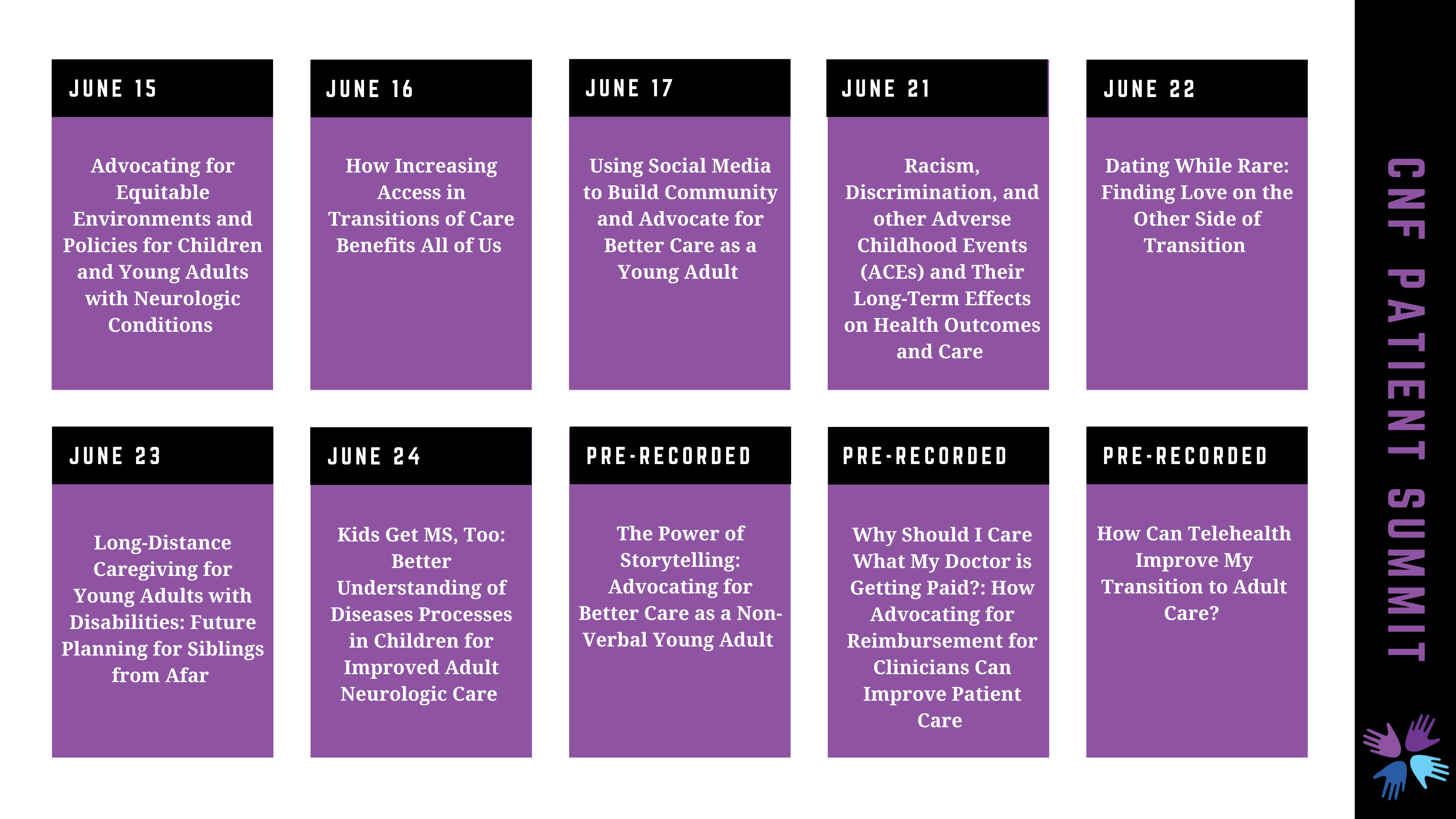
During the summit, you will:
-
- Learn how to share your story and advocate through the transitions of care process.
- Learn about building a community and advocating for equitable environments.
- Connect with experts with multiple perspectives in the child neurology community.
LIVE SESSIONS

Advocating for Equitable Environments and Policies for Children and Young Adults with Neurologic Conditions
In this talk, three activists who have worked to improve the lives of young people with neurologic conditions on behalf of themselves, their children, and their peers through direct action in education, healthcare, and employment share their stories to inspire us to take action. Participants will have the opportunity to ask the panelists questions about how to begin their own advocacy work to work to create more inclusive environments for young adults on the other side of their transition to adulthood.
Speakers & More Info
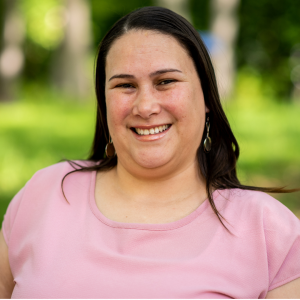 Yahaira Lopez is the founder of Autism Sprinter, Inc, a parent-led grassroots organization building parents as experts. Yahaira knows the struggles of Autism firsthand—she has twin boys on the Autism Spectrum who also experience ADHD. As any parents know, young boys can be a handful. Young premature twins added even more complications. And having twin boys with different levels of unique challenges adds even more difficulties. As a parent, Yahaira put her career on hold where she turned one of her bedrooms into a home classroom. She began to watch YouTube videos of autism therapies to learn different therapies to support her children’s needs.
Yahaira Lopez is the founder of Autism Sprinter, Inc, a parent-led grassroots organization building parents as experts. Yahaira knows the struggles of Autism firsthand—she has twin boys on the Autism Spectrum who also experience ADHD. As any parents know, young boys can be a handful. Young premature twins added even more complications. And having twin boys with different levels of unique challenges adds even more difficulties. As a parent, Yahaira put her career on hold where she turned one of her bedrooms into a home classroom. She began to watch YouTube videos of autism therapies to learn different therapies to support her children’s needs.
Yahaira has a Master’s degree in Human Service Organizational Management from Springfield College. She also has a Bachelor’s in Social Work from Salem State University. Yahaira has over 15 years working with children, youth and families in many different capacities. She has worked at Boston Public Schools, DCF, and Boston Center for Youth and families. Yahaira is currently a Family Partner for Riverside Community Care Mobile Crisis Unit. She is also a Boston Public School alumni who immigrated from Puerto Rico at the age of 4.
Yahaira’s work is dedicated to improving the lives of families and their loved ones presented with unique abilities navigating systems that seem impossible to understand. She believes parents are more than just caretakers. Yahaira says “Parents are experts too”. #autismsprinter
 Ari Ne’eman is based in Massachusetts and has been working in national disability rights activism for more than fifteen years. He currently serves as a Senior Research Associate at the Harvard Law School Project on Disability and a Visiting Scholar at the Lurie Institute for Disability Policy at Brandeis. His is the co-founder of the Autistic Self-Advocacy Network (ASAN), served from 2010-2015 as one of President Obama’s appointees to the National Council on Disability and is currently working on a PhD in Health Policy at Harvard University. He is also writing a book for Simon & Schuster on American disability history. Follow him on Twitter at @aneeman.
Ari Ne’eman is based in Massachusetts and has been working in national disability rights activism for more than fifteen years. He currently serves as a Senior Research Associate at the Harvard Law School Project on Disability and a Visiting Scholar at the Lurie Institute for Disability Policy at Brandeis. His is the co-founder of the Autistic Self-Advocacy Network (ASAN), served from 2010-2015 as one of President Obama’s appointees to the National Council on Disability and is currently working on a PhD in Health Policy at Harvard University. He is also writing a book for Simon & Schuster on American disability history. Follow him on Twitter at @aneeman.
 Cara Liebowitz is a DC-based activist, sensitivity reader, and writer with multiple disabilities. She works in fundraising, grant writing, and partnerships for a national disability rights nonprofit. By night, she reads and writes both nonfiction and fiction, watches Star Trek, and has long conversations with her cat. She remains convinced that she is a mermaid, as her legs don’t work well on land. Follow her on Twitter at @spazgirl11.
Cara Liebowitz is a DC-based activist, sensitivity reader, and writer with multiple disabilities. She works in fundraising, grant writing, and partnerships for a national disability rights nonprofit. By night, she reads and writes both nonfiction and fiction, watches Star Trek, and has long conversations with her cat. She remains convinced that she is a mermaid, as her legs don’t work well on land. Follow her on Twitter at @spazgirl11.
Wednesday, June 16 at 7pm ET
How Increasing Access in Transitions of Care Benefits All of Us
Access to care is a barrier preventing all of us from equally receiving care across the continuum, in both child and adult care. But addressing inaccessible care is too often viewed as something that only benefits patients from the populations who have difficulty accessing it. The panelists in this talk will share their research and experiences working to expand access to their patients, with particular attention paid toward transitions of care, will identify what barriers currently exist and how working to lessen them will improve care for all people experiencing neurologic conditions.

Speakers & More Info
 Bhooma Aravamuthan, MD, DPhil is an Assistant Professor in the Division of Pediatric Neurology at the Washington University School of Medicine. She leads the Aravamuthan Lab which seeks to cure dystonia in people with cerebral palsy. Follow her on Twitter at @drbhooma.
Bhooma Aravamuthan, MD, DPhil is an Assistant Professor in the Division of Pediatric Neurology at the Washington University School of Medicine. She leads the Aravamuthan Lab which seeks to cure dystonia in people with cerebral palsy. Follow her on Twitter at @drbhooma.

Amaris Sanchez-Larragoity, PsyD is anexperienced licensed psychologist and strong support professional who works with young adults in non-profit and community-centered industries. She isbased in San Juan, Puerto Rico, and is skilled in identity development and formation, and oriented towards positive and goal-focused approaches.

Jose Posas, MD is a Sports Neurologist and Neuroscientist who is based in New Orleans, Lousiana. He is the Neurology Residency Program Director at Ochsner Health System, and is part of the Ochsner Concussion Management Program and the Ochsner Headache Center. He is also the Chair of the American Academy of Neurology Underrepresented in Neurology Section, and is heavily involved in inclusion efforts at the AAN.
Register Now

Thursday, June 17 at 7pm ET
Using Social Media to Build Community and Advocate for Better Care as a Young Adult
Whether it’s on Instagram, Tiktok, or through designing your own brand, the internet can be an incredible place for you to share your story, learn how to advocate, and find friends and allies. But there can also be a toxicity to these platforms. These panelists have seen it from all sides and continue to flourish. In this session, learn how to harness the strengths of social media while learning how to avoid—or at least deal with—some of the negative effects.
Speakers & More Info
 Keisha Greaves lives in Cambridge, Massachusetts, and holds a Bachelor’s in Fashion Design and Marketing, and Master’s Degree in Business Management and works as a Merchandise Coordinator. She was diagnosed with Limb-Girdle Muscular Dystrophy when she was 24, and through that experience, founded Girls Chronically Rock, a fashion line designed for girls with disabilities. She is 2021’s Muscular Dystrophy Association’s National Ambassador. Check out Keisha’s brand at girlschronicallyrock.com.
Keisha Greaves lives in Cambridge, Massachusetts, and holds a Bachelor’s in Fashion Design and Marketing, and Master’s Degree in Business Management and works as a Merchandise Coordinator. She was diagnosed with Limb-Girdle Muscular Dystrophy when she was 24, and through that experience, founded Girls Chronically Rock, a fashion line designed for girls with disabilities. She is 2021’s Muscular Dystrophy Association’s National Ambassador. Check out Keisha’s brand at girlschronicallyrock.com.
 Erin Novakowski is a 19-year old living with Spinal Muscular Atrophy (SMA) living in Calgary, Alberta, CAN. She is a second-year student at the University of Calgary taking a BA in Political Science. She is passionate about human rights, political action, and disability justice. She is a freelance writer and Social Media Editor for Cripple Magazine, and her writing has been featured in both local and international publications. Follow her on Tiktok at @wheelierin.
Erin Novakowski is a 19-year old living with Spinal Muscular Atrophy (SMA) living in Calgary, Alberta, CAN. She is a second-year student at the University of Calgary taking a BA in Political Science. She is passionate about human rights, political action, and disability justice. She is a freelance writer and Social Media Editor for Cripple Magazine, and her writing has been featured in both local and international publications. Follow her on Tiktok at @wheelierin.
 Jen Roman is a young adult who has been impacted by Idiopathic Intracranial Hypertension since 2016. Instilled with a classic sense of Jersey-grit and a passion for helping others, she was a firefighter/EMT prior to becoming disabled from her condition. After enduring ten brain procedures, Jen utilized her medical knowledge to become an expert in her condition and the shunting technology that keeps her alive. In the beginning of her journey, Jen felt immense isolation and an inability to connect with her peers. However by using the power and reach of social media, she was able to become engaged with a community that welcomed her and encouraged her to fight on. Jen’s recent work includes features on blogs, podcasts, music, and more! She spends most of her time fighting for legislation as a patient advocate, writing about her experiences, volunteering for multiple organizations, public speaking to raise awareness, and helping anyone in need. She is also a professional vocalist with a natural gift for performing. With her unique “rockstar” look and a great sense of humor, Jen wishes to inspire other patients and advocates alike to always be true to themselves. After all, being normal is vastly overrated.
Jen Roman is a young adult who has been impacted by Idiopathic Intracranial Hypertension since 2016. Instilled with a classic sense of Jersey-grit and a passion for helping others, she was a firefighter/EMT prior to becoming disabled from her condition. After enduring ten brain procedures, Jen utilized her medical knowledge to become an expert in her condition and the shunting technology that keeps her alive. In the beginning of her journey, Jen felt immense isolation and an inability to connect with her peers. However by using the power and reach of social media, she was able to become engaged with a community that welcomed her and encouraged her to fight on. Jen’s recent work includes features on blogs, podcasts, music, and more! She spends most of her time fighting for legislation as a patient advocate, writing about her experiences, volunteering for multiple organizations, public speaking to raise awareness, and helping anyone in need. She is also a professional vocalist with a natural gift for performing. With her unique “rockstar” look and a great sense of humor, Jen wishes to inspire other patients and advocates alike to always be true to themselves. After all, being normal is vastly overrated.
Monday, June 21 at 7pm ET
Racism, Discrimination, and other Adverse Childhood Events (ACEs) and Their Long-Term Effects on Health Outcomes and Care
Racial healthcare inequalities are the result of long-term discriminatory patterns and systems of oppression. These patterns and systems have implications for children and young adults experiencing neurologic conditions, too, and can complicate access to and quality of care across the continuum, even in transitions of care. In this panel, experts will share their research and experiences in discrimination and its effect on healthcare, and share strategies for getting involved to create more equitable health outcomes for all children and young adults.

Speakers & More Info
 Magdelena Szaflarski, PhD is an Associate Professor and the Director of Graduate Studies in the Department of Sociology at the University of Alabama at Birmingham. Her passion and research has always been in addressing the health needs of vulnerable populations—those who are economically disadvantaged, populations of color, those who are stigmatized, and those who are chronically ill. She has published studies in health and social science journals on topics ranging from racial disparities in HIV to quality of life in epilepsy and mental disorders.
Magdelena Szaflarski, PhD is an Associate Professor and the Director of Graduate Studies in the Department of Sociology at the University of Alabama at Birmingham. Her passion and research has always been in addressing the health needs of vulnerable populations—those who are economically disadvantaged, populations of color, those who are stigmatized, and those who are chronically ill. She has published studies in health and social science journals on topics ranging from racial disparities in HIV to quality of life in epilepsy and mental disorders.
 Brandi M. White, PhD, MPH is an Assistant Professor at the University of Kentucky. Her scholarly activities focus on understanding the influence of the social determinants on health outcomes for medically-underserved populations. She has a Masters in Public Health from the University of Minnesota in community health education and a PhD in Health and Rehabilitation Science from the Medical University of South Carolina.
Brandi M. White, PhD, MPH is an Assistant Professor at the University of Kentucky. Her scholarly activities focus on understanding the influence of the social determinants on health outcomes for medically-underserved populations. She has a Masters in Public Health from the University of Minnesota in community health education and a PhD in Health and Rehabilitation Science from the Medical University of South Carolina.
 India Smith, MMSc graduated with a Bachelor of Arts in Neuroscience from Boston University in 2018, where she worked in research focusing on neurobiology in children ages 6 months to 6 years. In 2020, she graduated from the Masters in Medical Sciences program at the University of Kentucky. Currently she is a Research Coordinator at UK who, along with her peers, aims to alleviate health disparities by adapting and creating tailored interventions for disadvantaged populations.
India Smith, MMSc graduated with a Bachelor of Arts in Neuroscience from Boston University in 2018, where she worked in research focusing on neurobiology in children ages 6 months to 6 years. In 2020, she graduated from the Masters in Medical Sciences program at the University of Kentucky. Currently she is a Research Coordinator at UK who, along with her peers, aims to alleviate health disparities by adapting and creating tailored interventions for disadvantaged populations.

Tuesday, June 22 at 7pm ET
Dating While Rare: Finding Love on the Other Side of Transition
There are a lot of resources out there for young people moving to adult care, but what about other aspects of adulthood—like dating? These panelists will share their experiences dating with rare disorders and/or disabilities, and answer your questions about when and how to tell potential partners about your condition, and how to negotiate your needs and expectations. They will also discuss some of the political and financial concerns of marriage in our community, looking at recent discussions on social media like #CantMarryMyLove, begun by disability advocate Imani Barbarin.
Speakers & More Info
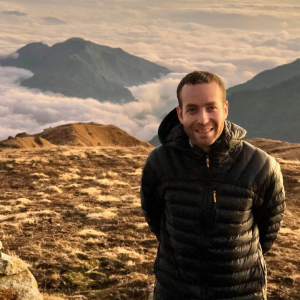 Seth Rotberg lives in Cambridge, Massachusetts and is the co-founder of the nonprofit Our Odyssey, a group developed to connect young adults impacted by a rare or chronic condition to improve their quality of life. As part of his patient advocacy, he shares his own story of his mother’s 17-year battle with Huntington’s Disease, and discussing how the disease may impact him directly. Follow him on Twitter at @srotberg15.
Seth Rotberg lives in Cambridge, Massachusetts and is the co-founder of the nonprofit Our Odyssey, a group developed to connect young adults impacted by a rare or chronic condition to improve their quality of life. As part of his patient advocacy, he shares his own story of his mother’s 17-year battle with Huntington’s Disease, and discussing how the disease may impact him directly. Follow him on Twitter at @srotberg15.
 Kuen Tang is an artist, author, athlete, educator, and activist who has served on the Premier’s Council on the Status of Persons with Disabilities. She was the first quadriplegic woman to earn a Bachelor of Education degree, and the first quadriplegic to letter a comic book for DC Comics. She lives in Edmonton with her husband and 3-year old child. Learn more about her at kuentang.com.
Kuen Tang is an artist, author, athlete, educator, and activist who has served on the Premier’s Council on the Status of Persons with Disabilities. She was the first quadriplegic woman to earn a Bachelor of Education degree, and the first quadriplegic to letter a comic book for DC Comics. She lives in Edmonton with her husband and 3-year old child. Learn more about her at kuentang.com.
 Eden Summerlin is an artist, activist, and writer, who addresses complex social issues using their perspective as an autistic and physically disabled butch lesbian. They are best known as the lead administrator of The Autisticats, which is an autistic self-advocacy platform on multiple social media platforms (primarily Instagram and Twitter). They were diagnosed as autistic between the ages of eight and nine. They are currently nineteen years old, and majoring in Anthropology at the University of Vermont.
Eden Summerlin is an artist, activist, and writer, who addresses complex social issues using their perspective as an autistic and physically disabled butch lesbian. They are best known as the lead administrator of The Autisticats, which is an autistic self-advocacy platform on multiple social media platforms (primarily Instagram and Twitter). They were diagnosed as autistic between the ages of eight and nine. They are currently nineteen years old, and majoring in Anthropology at the University of Vermont.
Wednesday, June 23 at 7pm ET
Long-Distance Caregiving for Young Adults with Disabilities: Future Planning for Siblings from Afar
Siblings are often involved in the future planning of their sibling with disabilities or who experience a neurologic condition, but the connectedness of our world means that this caregiving can evolve. There are an estimated 7 million long distance caregivers in the United States today, and while most literature and advice focuses on caregiving for an aging parent or sibling, young adults are also doing this work. These panelists will share their experiences in long-distance caregiving and answer your questions about how to get information and build support for our siblings with neurologic conditions.

Speakers & More Info
 Austin Nugent is based in Kentucky, and is the Disability and Health Program Coordinator with the Human Development Institute at the University of Kentucky. She advocates for the rights of individuals with mental health conditions on the PAIMI (Protection and Advocacy for Individuals with Mental Illness) Council, and is a committee member with the Center for Dignity in Healthcare for People with Disabilities. She is the oldest sister to three brothers with support needs, one with Down Syndrome, and two others who have been impacted with early adverse childhood experiences. Her brothers and their parents live in Arizona, and she will share her experience as a long-distance advocate and plans to be an integral part of her siblings’ futures.
Austin Nugent is based in Kentucky, and is the Disability and Health Program Coordinator with the Human Development Institute at the University of Kentucky. She advocates for the rights of individuals with mental health conditions on the PAIMI (Protection and Advocacy for Individuals with Mental Illness) Council, and is a committee member with the Center for Dignity in Healthcare for People with Disabilities. She is the oldest sister to three brothers with support needs, one with Down Syndrome, and two others who have been impacted with early adverse childhood experiences. Her brothers and their parents live in Arizona, and she will share her experience as a long-distance advocate and plans to be an integral part of her siblings’ futures.
 Nathan Grant is the twin brother of Nik Grant who has a rare genetic condition called Mucopolysaccharidosis (MPS) type II, also known as Hunter syndrome. Nik has been Nathan’s biggest inspiration. In 2015, Nathan created Siblings with a Mission, an international organization that supports siblings who have brothers and sisters with complex health conditions through online story columns, a resource database, and virtual and in-person events. In addition to Siblings with a Mission, Nathan also serves on the Board of Directors of the Sibling Leadership Network. From Cincinnati, Ohio, Nathan received his undergraduate degree in Molecular and Cellular Biology from Harvard College and an MPhil in Health, Medicine, and Society at the University of Cambridge as a Harvard-UK Fellow. In the future, Nathan hopes to work in the field of medicine to help people with complex health conditions and their families.
Nathan Grant is the twin brother of Nik Grant who has a rare genetic condition called Mucopolysaccharidosis (MPS) type II, also known as Hunter syndrome. Nik has been Nathan’s biggest inspiration. In 2015, Nathan created Siblings with a Mission, an international organization that supports siblings who have brothers and sisters with complex health conditions through online story columns, a resource database, and virtual and in-person events. In addition to Siblings with a Mission, Nathan also serves on the Board of Directors of the Sibling Leadership Network. From Cincinnati, Ohio, Nathan received his undergraduate degree in Molecular and Cellular Biology from Harvard College and an MPhil in Health, Medicine, and Society at the University of Cambridge as a Harvard-UK Fellow. In the future, Nathan hopes to work in the field of medicine to help people with complex health conditions and their families.
 Lauren Klaffke is a PhD Candidate in the History of Science, Technology, and Medicine at the University of Minnesota in Minneapolis. She is an oral historian, currently working on a project for Minnesota’s Department of Neurology. She also worksa t the University’s Writing Center and Pharmacy Learning Commons. Lauren grew up in San Antonio, Texas, where her immediate family still lives. She has two younger brothers, Hans and Ben. Hans is 32 years old, and has nonverbal autism with developmental disabilities.
Lauren Klaffke is a PhD Candidate in the History of Science, Technology, and Medicine at the University of Minnesota in Minneapolis. She is an oral historian, currently working on a project for Minnesota’s Department of Neurology. She also worksa t the University’s Writing Center and Pharmacy Learning Commons. Lauren grew up in San Antonio, Texas, where her immediate family still lives. She has two younger brothers, Hans and Ben. Hans is 32 years old, and has nonverbal autism with developmental disabilities.
Thursday, June 24 at 7pm ET
Kids Get MS, Too: Better Understanding of Diseases Processes in Children for Improved Adult Neurologic Care
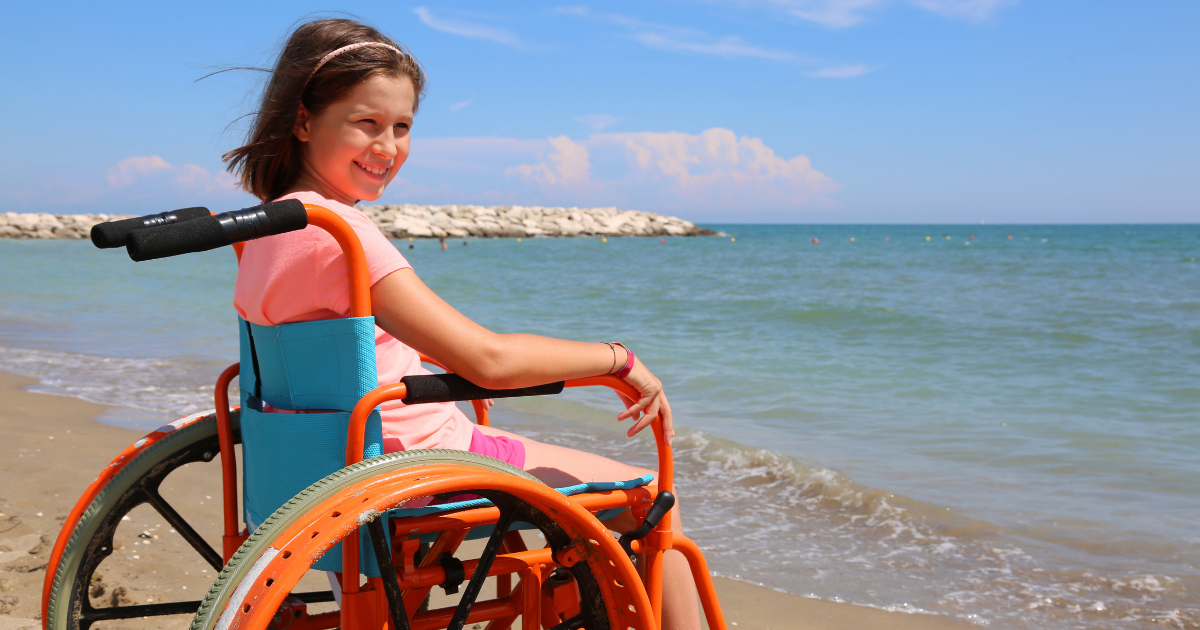
Transition to Adult Neurology care remains difficult for many young adults with chronic neurologic conditions—in part, because adult neurologists may not feel confident treating patients with intellectual or developmental disabilities, or who have diseases that until recently did not see individuals experiencing them living to adulthood. Multiple Sclerosis is one of the more commonly treated disorders by adult neurologists, but children also experience MS. By advocating for better understanding of pediatric MS through clinical trials, young people with pediatric MS will receive better care across the continuum—and these lessons can be applied to other conditions and disease states. Two clinicians will share their perspectives treating and researching childhood disorders including pediatric MS, and a young woman living with MS will share her story about how her diagnosis as a child led to a smoother transition as an MS patient receiving adult care.
Speakers & More Info
Tanuja Chitnis, MD is a Professor of Neurology at Harvard Medical School and a Senior Scientist within the Ann Romney Center for Neurologic Diseases where she created the Translational Neuroimmunology Research Center studying, among other conditions, multiple sclerosis in children. She is Chair of the International Pediatric MS Workgroup and has authored over 250 publications and reviews related to MS.
Hannah Schnitzler is a 19-year-old who received her diagnosis of Remitting Relapsing MS when she was 15-years-old. She is studying to become a Mechanical Engineer at St. Ambrose University in Illinois. Follow her on Instagram at @hannah_and_ms.
Ann C. Tilton, MD is a Professor of Neurology and Pediatrics and Section Chair of Child Neurology at Louisiana State Health Science Center in New Orleans. She is the director of the Rehabilitation Center at Children’s Hospital of New Orleans and director of the Comprehensive Spasticity Program. She studies neurorehabilitation, neuromuscular disorders, and clinical applications and research in novel uses of therapies in the care of children and adults with abnormal tone. She is the co-Chair of the Child Neurology Foundation’s Transition Project Advisory Committee, and has held leadership roles at the American Academy of Neurology, the Child Neurology Society, and the American Society of Neurorehabilitation.
PRE-RECORDED SESSIONS
The Power of Storytelling: Advocating for Better Care as a Non-Verbal Young Adult
This panel features three young women with Rett Syndrome and their mothers who together will share their stories about advocating for themselves while nonverbal, particularly around securing better care from adult clinicians.

Speakers & More Info
Lisa Evert became immersed in the world of special needs upon her daughter’s diagnosis of Rett syndrome in the year 2000. Her daughter is now 23, and Lisa lives with her family in Minnesota. She has served on the Board of Directors for the Midwest Rett Syndrome Foundation (MRSF) since its inception in 2002. The MRSF’s mission is to educate and support families while funding Rett syndrome research. A key accomplishment was partnering with Gillette Children’s Specialty Healthcare to launch the Rett syndrome clinic in 2005. This clinic in St. Paul is now recognized as a Center of Excellence in Rett syndrome care and research. Lisa holds a Bachelor of Science degree in Business Administration/Human Resources and worked professionally until her daughter’s graduation from high school. She left the working world to dedicate her time to establishing a new life of opportunity for her adult daughter. Lisa knew that independent living, gaining job skills or exploring post-secondary education were not the right focus areas post high school. Rather, she considered her daughters interests and strengths and began looking at experiences rather than tasks as being the priority.
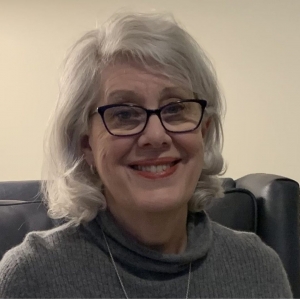 Theresa Bartolotta, PhD, CCC-SLP is the mother of a 31-year-old woman with Rett syndrome. Theresa is also an academic faculty member, researcher, consultant, and pediatric speech-language pathologist. In her work, she specializes in complex communication disorders, including autism, Down syndrome, and Rett syndrome. She holds a PhD in Health Sciences from Seton Hall University. She sits on the Program for Research & Support for Rett Syndrome’s Advisory Board at Monmouth University in New Jersey, provides clinical services at Tender Ones Therapy Services, Dacula, GA, teaches graduate courses, and is one of the co-authors of the recently released Rett Syndrome Communication Guidelines published by the International Rett Syndrome Foundation.
Theresa Bartolotta, PhD, CCC-SLP is the mother of a 31-year-old woman with Rett syndrome. Theresa is also an academic faculty member, researcher, consultant, and pediatric speech-language pathologist. In her work, she specializes in complex communication disorders, including autism, Down syndrome, and Rett syndrome. She holds a PhD in Health Sciences from Seton Hall University. She sits on the Program for Research & Support for Rett Syndrome’s Advisory Board at Monmouth University in New Jersey, provides clinical services at Tender Ones Therapy Services, Dacula, GA, teaches graduate courses, and is one of the co-authors of the recently released Rett Syndrome Communication Guidelines published by the International Rett Syndrome Foundation.
Suzanne Oberholster
Why Should I Care What My Doctor is Getting Paid?: How Advocating for Reimbursement for Clinicians Can Improve Patient Care

The American Academy of Neurology (AAN) is a professional society of neurologists who advocate on behalf of their profession, and in recent years, one of the biggest areas of clinician advocacy is working to make sure physicians are properly paid for their work. In transitions of care, this is important so that all members of the care team are appropriately compensated and incentivized to have all the necessary conversations before a patient is transferred to adult neurology. In this way, this advocacy that at first glance may only benefit clinicians is a way to advocate for improved patient care. This panel will introduce you to three experts in reimbursement advocacy, explain how this improves patient care, and share information about how sharing your stories about your transition experiences can help to drive the systems-level change necessary to improve transitions of care for all young adults experiencing neurologic conditions.
Speakers & More Info
 Christine Baca, MD MSHS is the Vice Chair for Clinical Affairs and Quality and Chair of the Epilepsy Division at Virginia Commonwealth University. Previously, she served as an Assistant Professor at the University of Colorado Anschutz School of Medicine, and trained at the Rochester School of Medicine, the University of California Los Angeles, and was a Robert Wood Johnson Clinical Scholars Fellow. Dr. Baca is passionate about the need to evaluate and improve gaps in care for vulnerable populations, including those transitioning from pediatric to adult health care settings. In collaboration with partners from Children’s Hospital of Colorado, she has led efforts to develop pediatric to adult transition programs for patients with epilepsy. She is the co-chair of the Child Neurology Foundation’s Transition Project Advisory Committee. Through research, education, quality improvement and clinical care, Dr. Baca’s mission is to evaluate and improve access to and quality of care for patients with neurological disease and symptoms.
Christine Baca, MD MSHS is the Vice Chair for Clinical Affairs and Quality and Chair of the Epilepsy Division at Virginia Commonwealth University. Previously, she served as an Assistant Professor at the University of Colorado Anschutz School of Medicine, and trained at the Rochester School of Medicine, the University of California Los Angeles, and was a Robert Wood Johnson Clinical Scholars Fellow. Dr. Baca is passionate about the need to evaluate and improve gaps in care for vulnerable populations, including those transitioning from pediatric to adult health care settings. In collaboration with partners from Children’s Hospital of Colorado, she has led efforts to develop pediatric to adult transition programs for patients with epilepsy. She is the co-chair of the Child Neurology Foundation’s Transition Project Advisory Committee. Through research, education, quality improvement and clinical care, Dr. Baca’s mission is to evaluate and improve access to and quality of care for patients with neurological disease and symptoms.
Jessica R. Gautreaux, MD specializes in Child Neurology at Children’s Hospital New Orleans. She attended medical school and completed her residency training at Louisiana State University New Orleans, and serves as an Assistant Professor of Child Neurology at LSU Health New Orleans. She chose pediatric neurology because she finds the nervous system interesting, complex, and challenging. She enjoys the relationships that grow and development with her patients and families, as many patients with neurologic conditions require long-term care. She is an active advocate for neurologists and their patients, participating on many committees at the American Academy of Neurology.
Korwyn L. Williams, MD, PhD is a pediatric neurologist at Phoenix Children’s Hospital, where he also serves as a Clinical Assistant Professor in the Department of Pediatrics at the University of Arizona College of Medicine. Dr. Williams is the American Academy of Neurology Liasion for ICD-10 Coding and Management, and the chair of the AAN Coding and Payment Policy Committee.
How Can Telehealth Improve My Transition to Adult Care?
Almost overnight in March 2020, telehealth became the primary, and sometimes only, way to receive healthcare in the United States. Patients, clinicians, and caregivers alike have all learned a lot about how to make this service more feasible and convenient. One area where we’re making great strides is in having conversations about transitions of care using telehealth. These panelists will share how they’ve used telehealth to improve transitions of care, and share strategies for how you can use it to improve your own transition.

Speakers & More Info
 Mary Zupanc, MD has been instrumental in the development of comprehensive pediatric epilepsy programs throughout the country, including at NYU, Columbia University, Mayo Clinic, and in her current position as the Co-Medical Director of the Neuroscience Institute at the Children’s Hospital of Orange County. An internationally recognized expert, Dr. Zupanc has published many articles in peer-reviewed journals in epilepsy, infantile spasms, and transition of care.
Mary Zupanc, MD has been instrumental in the development of comprehensive pediatric epilepsy programs throughout the country, including at NYU, Columbia University, Mayo Clinic, and in her current position as the Co-Medical Director of the Neuroscience Institute at the Children’s Hospital of Orange County. An internationally recognized expert, Dr. Zupanc has published many articles in peer-reviewed journals in epilepsy, infantile spasms, and transition of care.
She is also a Director on the Child Neurology Foundation’s Board.
 Allysa Ware, MSW is a Project Director with Family Voices. Allysa has spent the last decade working to improve access to education, medical services, and community supports for children with special health care needs and their families. Allysa received her master’s degree in social work from The Catholic University of America (CUA) and is currently pursuing her Ph.D. in social work at CUA with a research focus of autism diagnosis and treatment in the African-American community. She is licensed by the Association of Social Work Boards as a Licensed Graduate Social Worker (LGSW) in Washington, DC, and Maryland. Allysa is also the proud parent of a 16-year-old daughter with an autism spectrum disorder.
Allysa Ware, MSW is a Project Director with Family Voices. Allysa has spent the last decade working to improve access to education, medical services, and community supports for children with special health care needs and their families. Allysa received her master’s degree in social work from The Catholic University of America (CUA) and is currently pursuing her Ph.D. in social work at CUA with a research focus of autism diagnosis and treatment in the African-American community. She is licensed by the Association of Social Work Boards as a Licensed Graduate Social Worker (LGSW) in Washington, DC, and Maryland. Allysa is also the proud parent of a 16-year-old daughter with an autism spectrum disorder.
More Tools & Resources About Transitions Of Care
- CNF’s Transition of Care Toolkit
- TSC Alliance 2021 Transition Workshop Series
- CNF’s Transitions Resources for Young People with Neurologic Conditions and their Caregivers
- CNF’s Transitions Resources for Providers
- Transition of Care during Pandemics
- Education Transition For Youth With Neurological Conditions – a new step-by-step guide and an accompanying self-paced training curriculum
- Got Transition Resources
- Stay A Step Ahead: Prepare For The Future Of Your Epilepsy Care
- Seizure Assistance Dogs: What You Need To Know
- Epilepsy Foundation of America Transition Resources
- National Resource Center for Patient/Family-Centered Medical Home
- ASAN’s Toolkit for Sharing Your Story for a Political Purpose
- ASAN’s Healthcare Transition Toolkit
